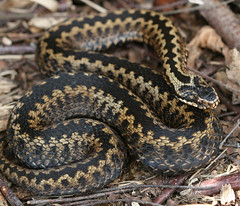Dear Language Nerd,
Why do we say “orange” instead of “norange”?
Amber Copsley
***
Dear Amber,
Finally, someone bites! Hurrah! Oranges were originally found in India, and the Sanskrit word for them was “naranga.” They entered European languages by way of Arabic, as “naranj.” So where did that first “n” go? Nasal shifting, baby.
We think of our words as having spaces between them, like in writing, but that’s not really how we speak. If we pause in between each word, we’re probably doing something dramatic, like declaring our steadfastness. But in normal speech, word boundaries are fuzzy, and this means they can shift with time. So when “norenge” arrives in French and gains the indefinite article “une,” what starts as “une norenge” and is pronounced more like “unnorenge” soon becomes “une orenge.” At which point we grabbed the word for use in English, too.
This is hardly the only example of such word reformation. The general process of shifting what sounds go with what word is called “rebracketing,” but we’re looking at a particular subset here called “nasal shift.” The nasals in English are /m/, /n/, and /ŋ/, but the important one here is /n/. (Remember that we use // for sounds? And remember ŋ? Yeah, double-callback!) /N/ is a prime candidate for a lot of shifting because of its strategic position in the “a/an” indefinite article duo. We pronounce “a nude” and “an Ood”* exactly the same, so any noun that begins with either a vowel or an /n/ could be imagined to begin with the other, and potentially get the shift.
So who has already fallen prey? “A newt,” for one, used to be an “an ewt,” before the /n/ moved from the article to the noun. Going the opposite way, we once could have been terrified of “a naddre,” rather than our current “adder.” And “an apron” used to show its relationship to “napkin” more clearly, back when it was “a napron.” Plus, my favorite, what on earth does “a nickname” mean? Did you get one in the nick of time? Nope. It made more sense back in the day as “an ekename,” where “eke” means “a little bit” (now kept only in the phrase “to eke out a living,” which is to make only barely enough money to survive). A nickname is just a little name!
Norange you glad you asked?
Yours,
The Language Nerd
*For those who pictured a nude Ood at this point, my humblest apologies. Though I guess you’d probably almost forgotten about it by now, huh? Well, I apologize for bringing it up again. Hope it doesn’t haunt you.
Got a language question? Ask the Language Nerd! asktheleagueofnerds@gmail.com
Or: Twitter @AskTheLeague / facebook.com/asktheleagueofnerds
My main source for this one is my History of English class from back in the day, supplemented by examples from the wikster, etymonline, and articles by Barnes and Searles. This one was oddly difficult to research, because I kept running into articles from plastic surgeons about shifting actual noses around. Which would be interesting from a language perspective, but is really not the same thing.

Was about to be snarky and ask how the Arabic word for “orange” wound up being “bortuqal,” but then I remembered it’s because in the Ottoman Empire, oranges came for Portugal.
Nevermind, no snarkiness today.
I enjoy your posts nonetheless though, Leah! I’m sorry we missed each other in Europe this year!
Haha, yep, turns out a lot of languages have variations on “Portugal” for oranges. Glad you like the stuff, maybe next year!
Most Spanish-speaking countries use naranja for orange but in Puerto Rico (and, I think, Cuba) we use china. Skin color? Also, in Cuba a china or chinita is a blonde-haired, light-skinned person. (Havana has a very large Chinatown and Chinese population, btw)
Now that’s really interesting! I’d say oranges are probably “china” there for the same reason they’re “portugal” in some other languages — where the fruit is seen as coming from. I’ve heard of “chinita” to mean an Asian gal, but blonde?
By the way, not sure if you recognize me here, but I interviewed you for my thesis a couple years back. You were extremely helpful, so thanks again for that!
[…] UPDATE: Someone finally asked about norange! […]
[…] UPDATE: Someone finally asked took me up on noranges! […]